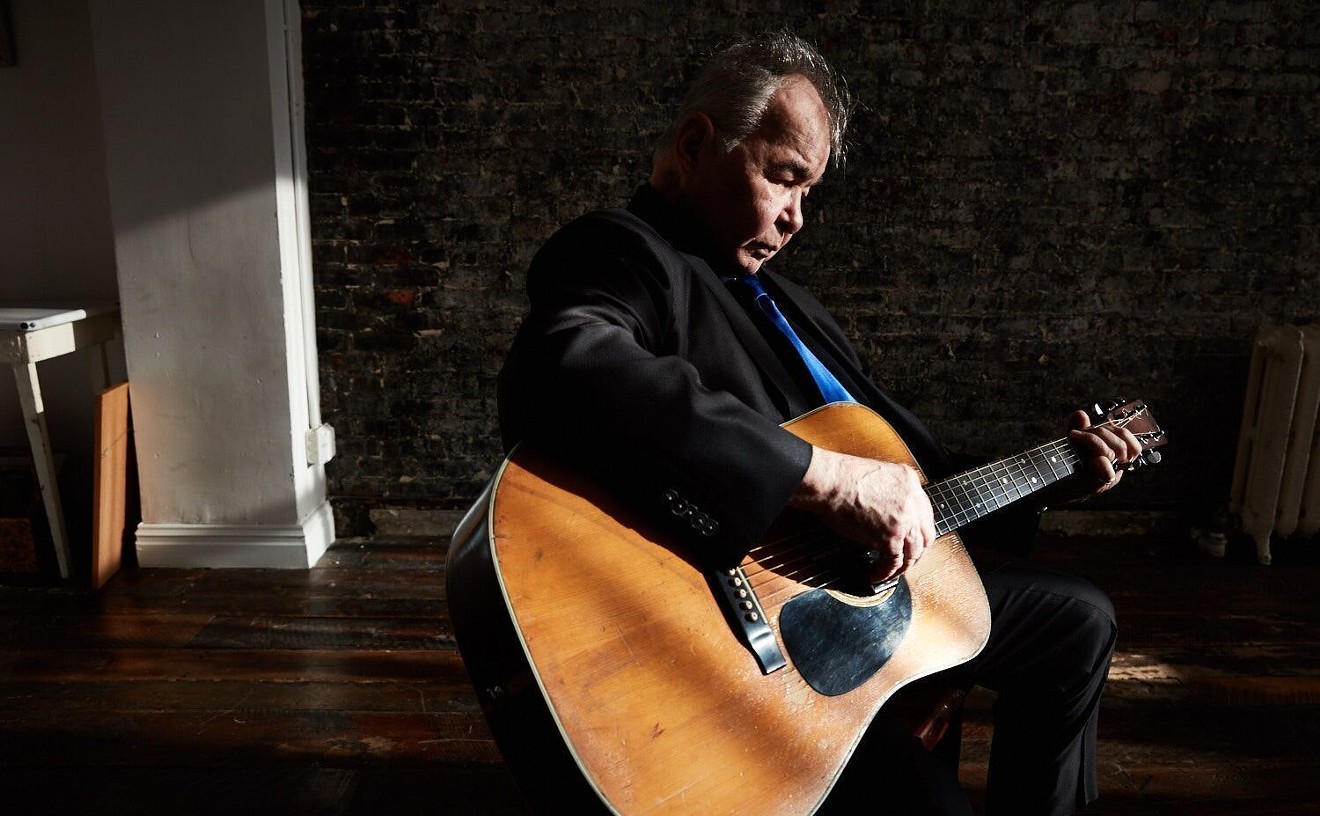Los Lonely Boys, of San Angelo, Texas, followed a similar trajectory. Now, keep in mind that although they spent much of their childhoods in Nashville, and even though the Red Headed Stranger himself has musically adopted them, the Boys are not a country act, at least not anymore.
What they are now is the future of Texas roots rock. The Garza brothers -- guitarist Henry, bassist JoJo and drummer "Ringo" Jr., who range in age from 20 to 24 -- deliver polished blues, rock, country and various Mexican sounds, sung in tight Spanish and English blood harmonies, all on top of a glittering musicianship that sounds as if it comes from players at least a decade older.
Then there are their old-school stage antics. Los Lonely Boys close every show with a number worthy of T-Bone Walker at his prime. Henry and JoJo play their guitars behind their heads while doing synchronized west Texas vato-meets-Chuck Berry Charleston variations. They then play with only their fretting hands while throwing their guitars in the air and catching them one-handed.
They learned their tricks from their father, "Ringo" Sr. In 1990, the elder Garza, who once played with his seven brothers in a conjunto group called the Backroads, took his family to Nashville with him to serve as his backing band. He had dreams of country stardom. What the family found instead was alienation, tragedy and the loneliness that perhaps gave the band its name.
"We stood out," Henry Garza says into his cell phone from the wide-open spaces of a San Angelo Wal-Mart. "Me and my brother JoJo were the only two Mexicans in our whole school and so was my little brother in elementary school. We would have people come up to us and say, What are you?' and we would say, Well, what are you? We're just human like you!' They would just freak out. They thought we were Indians or Arabs or Iranians or something."
Generally, the boys had to put up with the ribbing at school -- and with the handicap of being bone-tired. Life as a working musician is tough for an adult, and much more so for schoolkids.
"We were kids still in school and playing 24 hours," Henry says. "We would get off school and then go do our homework in the bar right across the street, and then play there until one or two in the morning and then grab a few hours' sleep before we went to school. Then the same thing repeated, man, over and over."
These gigs were far from the bright lights of Music Row. Most often, the Garza family's shows were on Nashville's Dickerson Road. They played the one-room beer joints among the no-tell motels, pawnshops and liquor stores that line the city's shadiest thoroughfare.
"We lived and played in the roughest parts of Nashville," Henry remembers. "We would walk in to play a country bar and you've got these three little Mexican boys and their Mexican father coming in to do country music, and people were like, Whoa! What's going on here?'"
As the elder Garza's dreams faded before the befuddled Nashvillians, he started investing more of his aspirations in his talented sons.
"When we were old enough, he took us out there and we tried to do it, too, man," Henry says. "We improved musically, but as far as getting anywhere, I can't really say that Nashville was the place."
They did record a self-titled album in 1998 in Athens, Georgia, with Reese Wynans backing them on keys.
"I was proud of it because it was our first real recording, but I wouldn't say that's who we are today," Garza says.
The album is dedicated to Henry's son "Mijo" Garza, who died from sudden infant death syndrome. Understandably, Henry doesn't want to talk about that chapter of his life while he's standing in the Wal-Mart. After Mijo's death, and the birth of a daughter, Henry wanted to make a fresh start in Texas: "I wanted my daughter to grow up in a good place. I thought, It's time to move on. I gotta go do my thing now.' I grew up here in San Angelo, so we came back here."
He was also just plain homesick for the huge skies of the west Texas plains. "We had to see the big blue," he says. "Up there, all those mountains were getting in the way of my scenery," he laughs.
People in Nashville told them they would be sorry.
"We were told we couldn't do it from here. And I said, Nah, I don't believe that, man. I think we can be home and take care of our families and do what we need to do wherever, however,'" Garza says.
And so far they have. They've signed a management deal with the Austin firm that also handles Omar and the Howlers. Fellow Nashville reject Willie Nelson has taken them under his wing. Henry has even lost track of how many shows they play each year. "Baby, how many shows do I play a year?" he asks his wife.
"A lot, dude," he says, turning his attention back to the interview. "We're gone every weekend, and that's not even counting private parties and the stuff we do during the week. Let's just say a lot."










